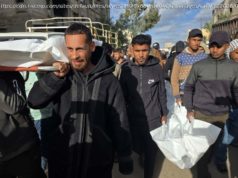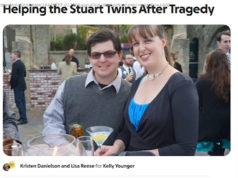Katrina survivors share hard-earned coping skills with this year’s hurricane victims: Don’t give up. Do get counseling. Don’t look back.
Don’t give up. Do get counseling. Don’t look back.
Survivors coped with problems for years after Hurricane Katrina decimated coastal Mississippi and Louisiana and flooded New Orleans. Now they have hard memories and hopeful experiences to share as southeast Texas, Florida and Puerto Rico begin to recover from this year’s hurricanes.
« It’s a long journey, » says Cecile Tebo, a social worker with the New Orleans Police crisis unit. For two years after the 2005 storm, most of her calls involved people who became suicidal while trying to recover. « It requires tremendous patience and it requires hope. »
« There were so many questions, » recalls pharmacist Ruston Henry, who lost his business in the Lower 9th Ward as his home flooded in the Gentilly neighborhood. « Can it be rebuilt? Can it not be rebuilt?
One thing they learned: Don’t go it alone.
« The way to survive these traumas is in community, » says law professor Bill Quigley, who relocated to Houston for months after Loyola University’s law school temporarily moved its classes there. He saw solidarity in New Orleans’ Vietnamese community and with his neighbors in the flooded Broadmoor neighborhood.
« People strengthened their ties with each other and their families, and that’s how people survived, » Quigley said.
Some symptoms didn’t emerge right away. Several months after Katrina’s floods subsided, many survivors developed signs of post-traumatic stress disorder — flashbacks, rapid heartbeat, feeling jumpy, sleeplessness — that lasted more than a year, according to research by Katie McLaughlin, an associate professor of psychology at the University of Washington in Seattle.
McLaughlin has seen reports of communities banding together in Puerto Rico since Maria struck, even as calls continue for more outside help. Strengthening support networks can make debilitating stress and anxiety less likely, she said.
After Katrina, depression was a new and stark reality for Tebo. She’s ebullient by nature — « A psychiatrist told me that I clearly have the happy gene, » she said — but with the flood damage that followed New Orleans’ levee failures, she didn’t know where she and her husband and their children would live, or whether their neighborhood would revive. They struggled over insurance, and with the Federal Emergency Management Agency. A family friend killed himself.
And then there was her work at the police crisis unit.
« The majority were calls involving people who were back here trying to rebuild, who’d never really had a mental health history but were starting to feel very helpless and hopeless and very suicidal, » she recalled.
It wore her down. At one point, months after the storm, « I couldn’t get out of bed for five days, » she said.
Then, she decided to take action: She wrote an open letter to the media. That drew national attention to her city’s plight, and helped her recover as well. Her work now involves getting mental health support for police officers and their families through the department’s Officer Assistance Program.
She put off getting counseling until about two years ago. « I should have done it earlier, probably, » she said.
Mental health professionals can be scarce after a disaster, but community organizations and church groups can help. It also helps to help others, Katrina’s survivors say.
« I got to know thousands of survivors, » said Quigley, a civil rights attorney. « The best way to survive was to invest yourself in the fight for justice for your family, for your neighborhood, for your community. »
Patience helps, too, Quigley said. « We cannot survive without government assistance, » he said. « But the government dysfunction can drive us crazy. »
Areas of Texas and Florida hit hard by Harvey and Irma need attention, but long-term assistance is crucial in Puerto Rico, where Maria ravaged already poor communities, said Dr. Sandro Galea, dean of Boston University’s public health school.
« The people who are affected by these events disproportionately are always people who are marginalized, who are under social and economic strain to begin with, » Galea said.
Even people with resources need to be determined, said Henry, who took a Walmart pharmacy job to provide for his wife and kids while restoring his home.
« It was catastrophic, it was traumatic. But, these are the challenges that have been put before you. You’ve got to man up and make it happen, » Henry said.
Some have had learned all this not just the hard way, but repeatedly.
Ashley Aples lost his home and possessions when New Orleans flooded 12 years ago — « You can imagine what it feels like, but you don’t know until you get your heart broken, » he recalls — and then he moved to Houston, where he found higher-paying work and less crime. Flooded again by Harvey, he’s preparing to take his family to Dallas.
« My wife was taking it kind of hard at first, but we’ve been through this before, » he said. « It’s kind of like having cheat sheets for the test. »
His advice? Consider the Old Testament story of Lot’s wife, turning into a pillar of salt because she failed to heed a divine warning while escaping the doomed Sodom and Gomorrah.
« The angel told them, » Aples recalled: « Don’t look back. »
Sign up today for a free 30 day free trial of unlimited digital access.






